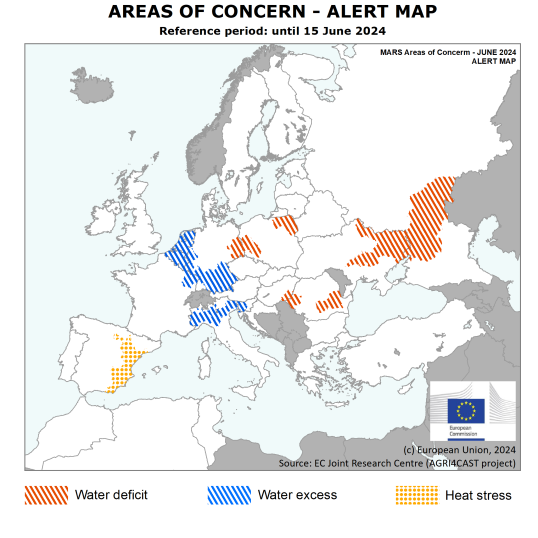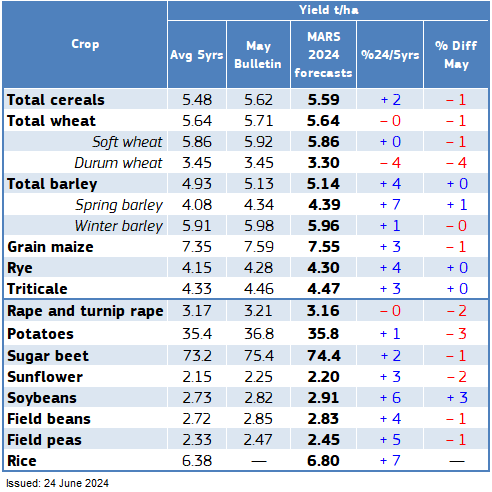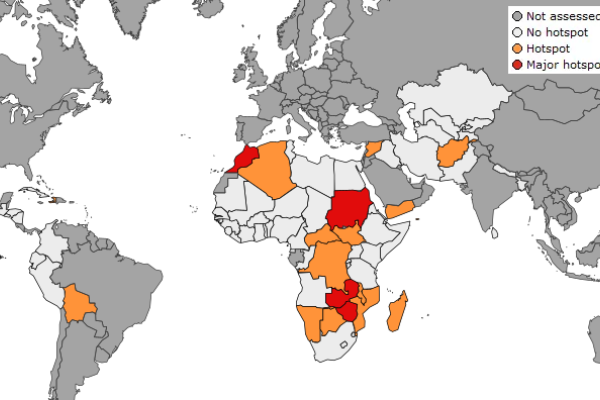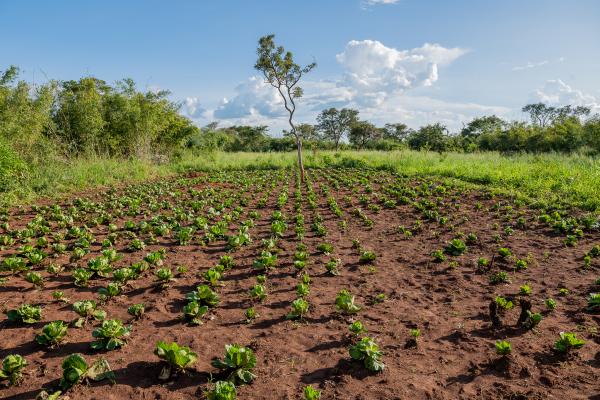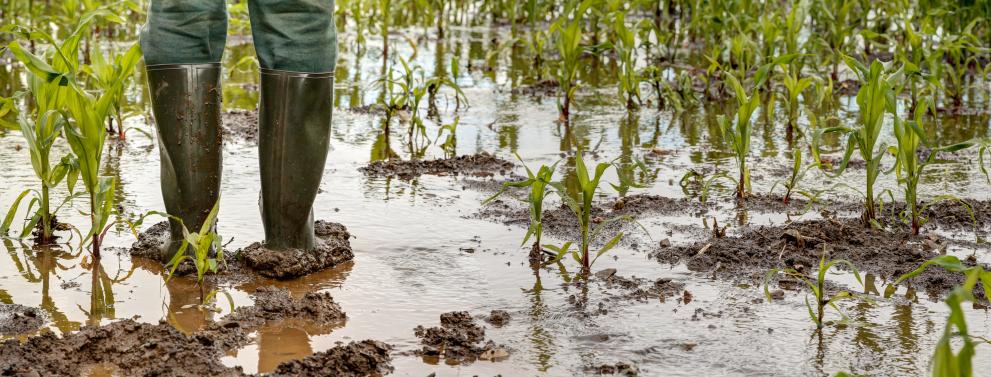
The yield forecast was most strongly reduced for durum wheat; mainly due to downward revisions for France and Italy. The yield forecast for soft wheat was revised most substantially downward for Italy, Romania and The Netherlands.
This edition of the Bulletin features a special section on rice, for which the outlook is currently positive overall.
Excessive rainfall continued in large areas of western Europe and northern Italy
Water excess continued in the Benelux, western Germany, north-eastern France and northern Italy, negatively affecting crop growth and field operations. Summer crops sowing is still ongoing in several of these regions; with an overall delay of up to two months. Pest and disease pressure remains also high in these regions, due to the combination of warm temperatures during most of spring, high humidity, and the difficult conditions for spraying and other field operations.
In southern Germany, recent intense rainfall events led to water logging and local floods after previously favourable conditions.
Water deficit negatively affected crops in several parts of central, southern and eastern Europe
In eastern Germany, south-western Poland and north-eastern Poland soil moisture levels are depleting, so far without negative impacts on crops. This is not the case in parts of Hungary, Romania, Ukraine and Russia, where a lasting water deficit negatively affected the yield expectations for winter crops. Negative impacts that occurred before the analysis period (e.g. in the Maghreb region, southern Italy, Greece, Cyprus and western Türkiye) are not repeated on the map.
Heatwaves in Spain exacerbate negative impacts of water stress in the east
In Spain, where overall yield expectations are positive, heatwaves in June worsened the condition of winter crops in some parts in the east that had already been affected by water stress.
A favourable start to the season for rice, despite sowing delays
The sowing campaign in large parts of Europe’s rice-growing regions was characterised by delays, as a consequence of frequent rain events in April and May. Nevertheless, compared with 2023, the area sown with rice is projected to increase, thanks to the higher levels of snowpacks and of water in reservoirs available for irrigation. The yield forecast for rice is currently based on historical trends and is 7.0 % above the 5-year average at the EU level.
Further information
Subscribe to the JRC MARS Bulletin | (Unsubscribe from your profile page)
JRC MARS (Monitoring Agricultural Resources) Bulletins
The latest information about global agricultural production hotspots for countries at risk of food insecurity is available on the JRC’s ASAP (Anomaly hot Spots of Agricultural Production).
Details
- Publication date
- 24 June 2024
- Author
- Joint Research Centre
- JRC portfolios

